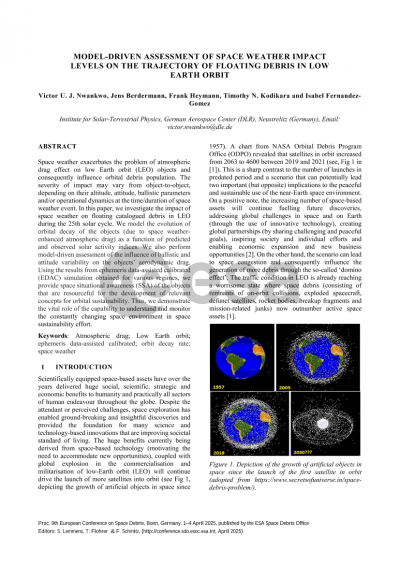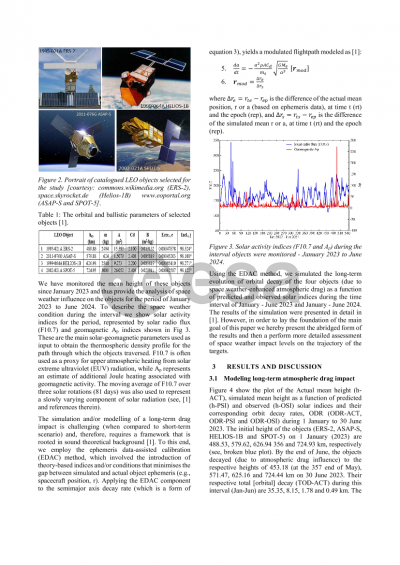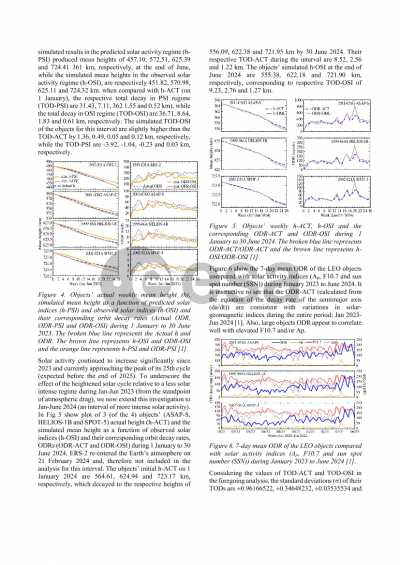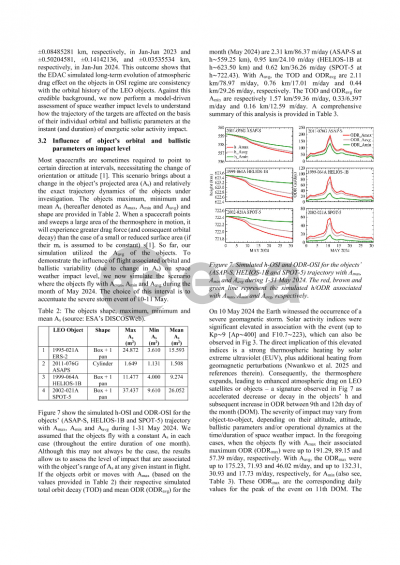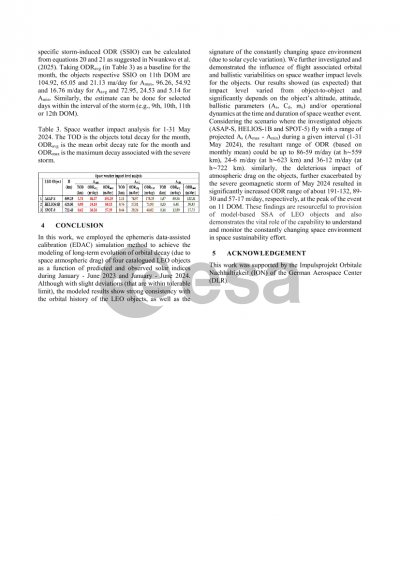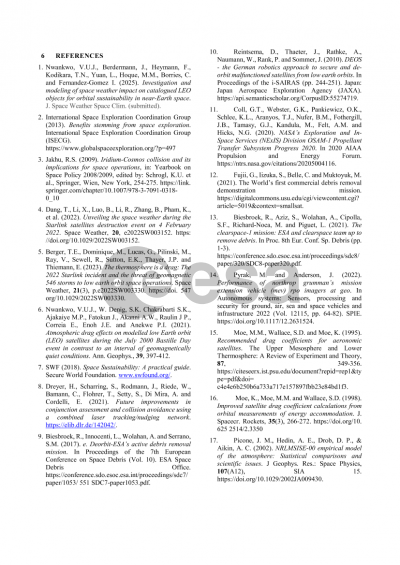Document details

Abstract
Space weather exacerbates the problem of atmospheric drag effect on space-based objects (especially in low Earth orbit) and consequently influence orbital debris population. The severity of impact may vary from object-to-object, depending on their altitude, attitude, ballistic parameters and/or operational dynamics at the time/duration of impact. In this paper, we investigate the impact of space weather on floating catalogued debris in low Earth orbit (LEO) during the 25th solar cycle. We model the evolution of orbital decay of the LEO objects (due to space weather-enhanced atmospheric drag) as a function of predicted and observed solar activity indices. We also perform model-driven assessment of the influence of ballistic and attitude variability on the objects’ aerodynamic drag. Using the results from ephemeris data-assisted calibrated (EDAC) simulation obtained for various regimes, we provide space situational awareness (SSA) of the objects that are resourceful for the development of relevant concepts for orbital sustainability. Thus, we demonstrate the vital role of the capability to monitor and understand the constantly changing space environment in space sustainability.
Preview
